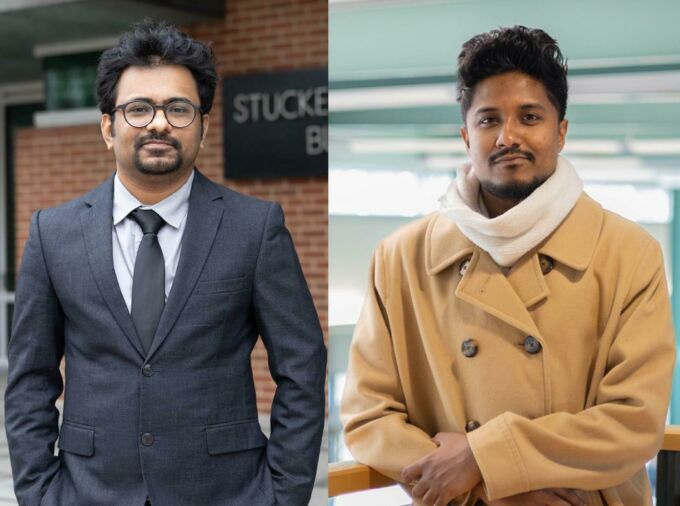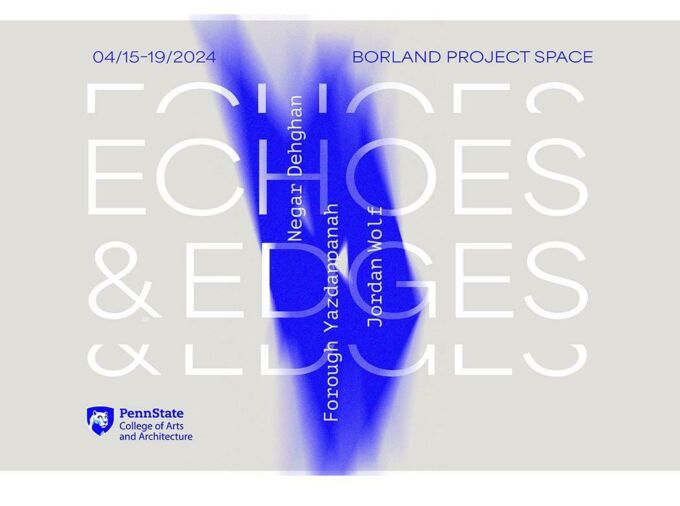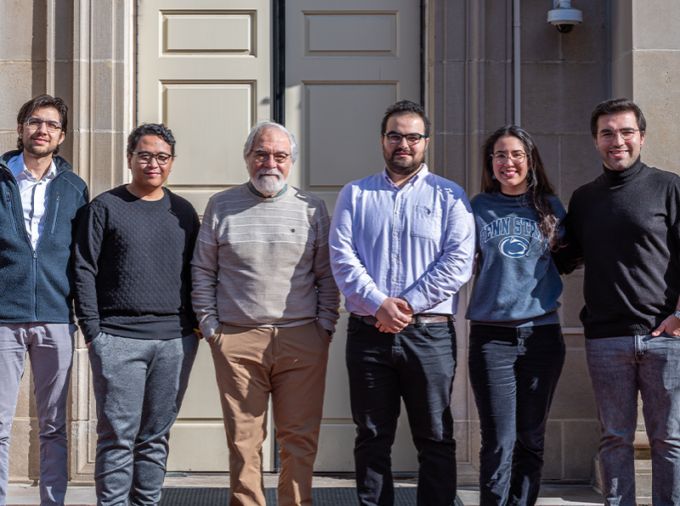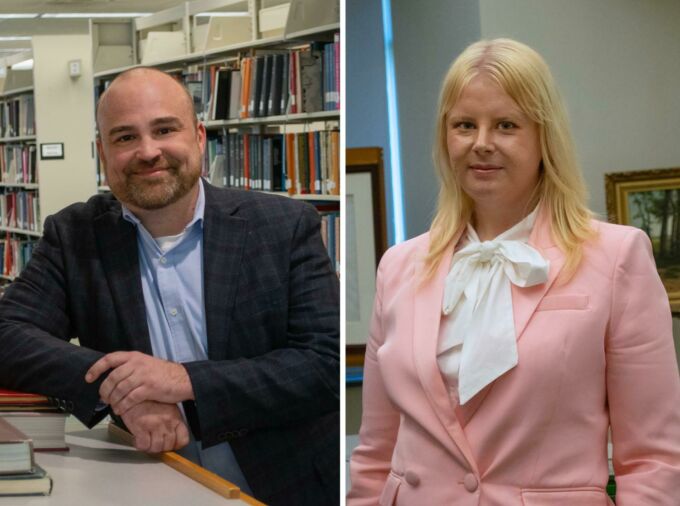August 14, 2024
Early life exposure to common chemical permanently disrupts gut microbiome
August 13, 2024
Less sleep and later bedtime in childhood linked to future substance use
August 12, 2024
Rewriting the evolutionary history of critical components of the nervous system
August 12, 2024
Julianna Simon named interim director of Graduate Program in Acoustics
August 12, 2024
Re-engineering medical simulation training for the next generation of physicians
August 12, 2024
Nursing student honored for helping children with cancer prevent mouth sores
August 09, 2024
Memory problems in old age linked to a key enzyme, study in mice finds
August 08, 2024
College of Education alumna returns to Penn State to continue equity journey
August 07, 2024
Ag Sciences researchers win award for ‘superior’ paper from engineering society
August 07, 2024
Giant fossil seeds from Borneo record ancient plant migration
August 06, 2024
Bellisario College exhibits wide-ranging research at conference in Philadelphia
August 06, 2024
Bringing health care back to a rural Pennsylvania community
August 05, 2024
CAPS reaccredited for doctoral internship in health service psychology
August 05, 2024
CAPS re-accredited for doctoral internship in health service psychology
August 05, 2024
Atoms in advanced alloys find preferred neighbors when solidifying
August 02, 2024
2024 Murphy Award honors Air Force veteran
August 01, 2024
Penn State alumna's family has reason to be grateful for organ donation
July 31, 2024
How duplicated genomes helped grasses diversify and thrive
July 30, 2024
Genes or environment? A new model for understanding disease risk factors
July 30, 2024
New high-resolution 3D maps show how the brain’s blood vessels change with age
July 30, 2024
Trying to limit calories? Skip the dip, researchers advise
June 27, 2024
Biodegradable electronics may advance with ability to control dissolve rate
June 27, 2024
Q&A: In ChatGPT we trust?
June 26, 2024
Self-assembling, highly conductive sensors could improve wearable devices
June 26, 2024
Penn State students’ project designed to uplift Nepal and protect wildlife
June 26, 2024
Researchers compile Cacao Gene Atlas to help plant breeders boost chocolate tree
June 26, 2024
Identifying depression, anxiety symptoms prior to puberty in adolescent females
June 25, 2024
Women may face unique obstacles while seeking treatment for opioid use
June 25, 2024
Got prunes? Prunes may preserve bone density and strength in older women
June 21, 2024
Celebrating excellence in postdoctoral scholarship and mentorship at Penn State
June 21, 2024
Penn State's graduate education training program in physiology awarded $2.75M
June 20, 2024
New tomato, potato family tree shows that fruit color and size evolved together
June 20, 2024
Showalter named assistant dean for graduate and postdoctoral affairs
June 18, 2024
Architecture doctoral candidate works to make robots more intelligent, adaptive
June 18, 2024
Empathetic children may have poorer health in the face of interparental conflict
June 17, 2024
Unexpected diversity of light-sensing proteins goes beyond vision in frogs
June 17, 2024
Marsquakes may help reveal whether liquid water exists underground on red planet

May 02, 2024
Music graduate student wins University’s Professional Master’s Excellence Award

April 30, 2024
Two Stuckeman architecture graduate students recognized for research theses

April 11, 2024
Two College of Medicine graduate students receive prestigious Penn State awards

April 11, 2024
Four alumni recognized with 2024 Graduate School Alumni Society Awards

April 11, 2024
Faculty Article 2

April 11, 2024
Penn State Graduate School Alumni Joins LSU Administration

April 11, 2024
Faculty Article 3

April 11, 2024
Professor Selected to National Academy

April 09, 2024
Graphic design graduate students to host project exhibition on human well-being

April 08, 2024
Penn State team wins national competition on use of AI in the energy industry

April 05, 2024